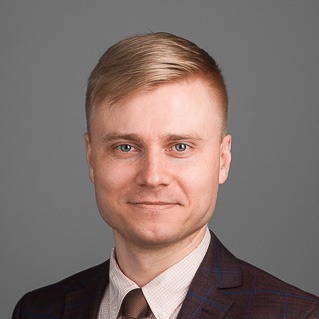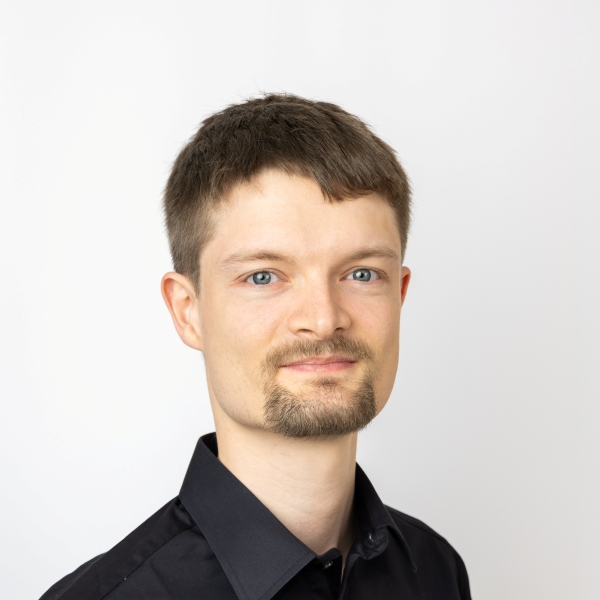Participants
We are inviting a select group of about 10 early-career researchers to attend in person as panel participants. These attendees have been chosen for their diverse perspectives and active contributions to the field of ionic liquids. Candidates hold a PhD obtained ≤ 10 years ago, are currently based in Europe, and remain active in ionic liquid research. Panel discussions and talks will be streamed live, and remote attendees can engage via chat. This hybrid format ensures wide accessibility while keeping the in-person event focused.
-
Adriaan van den Bruinhorst
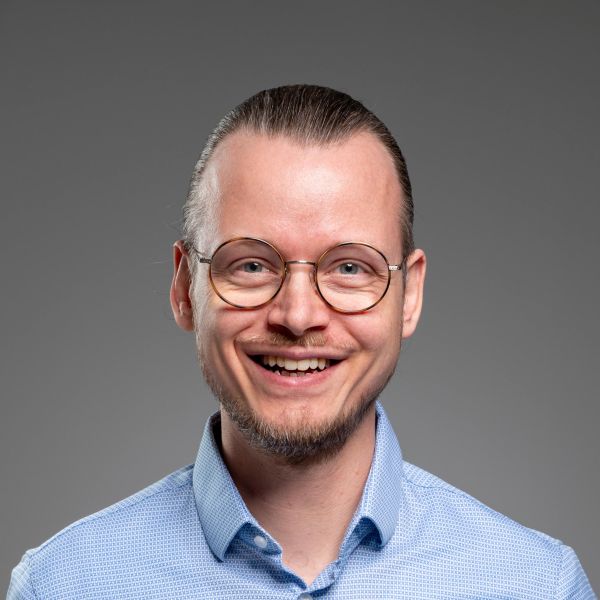
Adriaan van den Bruinhorst earned his bachelor’s and master’s degrees in chemical engineering and chemistry at Eindhoven University of Technology (The Netherlands). His master’s thesis on deep eutectic solvents (DESs) for biomass fractionation received the best thesis award from the chemical engineering and chemistry department and won an industrial prize, inspiring him to pursue a PhD on the same topic. His research focus shifted from DES applications to the development of the first hydrophobic DESs and the thermodynamics behind DES formation, leading to his PhD thesis (2018) and 15 highly cited papers. In 2019, he pursued his career as a post-doctoral researcher within the Ionic Liquids group of Margarida Costa Gomes and Agílio Pádua at the École Normale Supérieure de Lyon (France). He was the driving force behind two breakthroughs: unveiling the melting properties of choline chloride using fast scanning calorimetry combined with in-situ synchrotron XRD, and demonstrating entropy-dominated salt liquefaction through DES formation. In 2024, he was appointed assistant professor at the Université Clermont Auvergne (France), where he is currently developing a research line towards the thermodynamics of salt liquefaction using calorimetry.
- Thermodynamics
- Calorimetry
- Entropy
- Deep Eutectic Solvents
-
Carla S Perez Martinez
Carla Perez Martinez is a UKRI Future Leaders Fellow at the London Centre for Nanotechnology at University College London. Carla obtained her BS, MS and PhD degrees from MIT in 2011, 2013 and 2016, respectively. For her undergraduate and graduate research, Carla worked with Prof Paulo Lozano in the MIT Space Propulsion Lab, developing ionic liquid ion sources. After her PhD, she moved to the UK to take up a postdoctoral position in the group of Prof Susan Perkin in the Physical and Theoretical Chemistry Laboratory at the University of Oxford, where she was also appointed Junior Research Fellow at Trinity College. At Oxford, Carla studied ionic liquids and electrolytes under nanoconfinement, in particular, the response of these substances when subjected to electric fields. In January 2020, Carla moved to the London Centre for Nanotechnology with funding from UKRI to set up her own group, to develop new nanomanufacturing technologies based on ionic liquid ion sources. In 2025, Carla was awarded the Early Career Award from the International Conference on Electron, Ion, Photon Beam Technology and Nanofabrication for her significant contributions to nanofabrication technology and service to the community.
- Ionic liquids
- Nanofabrication
- Focused ion beams
- Propulsion
- Surface forces
-
Coby Clarke
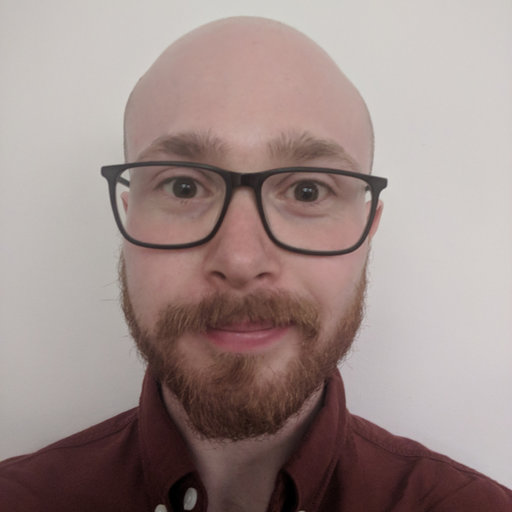
I began working with ionic liquids at the University of Nottingham during my masters project, where I was trying to purify them by distillation under high vacuum at 400 degrees on a 100g scale. To my surprise, the hexafluorophosphate imidazolium ILs decomposed to give a white zwitterionic adduct, releasing 1 equivalent of anhydrous HF as a byproduct into the diff pump. Many distillations later, I finished my project and decided to pursue a PhD with Prof. Peter Licence in a much safer area - liquid phase surface science. I specialised in chemical state analysis with X-ray photoelectron spectroscopy, which, I now appreciate, is a very useful skill. I subsequently moved to Imperial College London, working with Prof. Jason Hallett in the Department of Chemical Engineering working on stabilising proteins in ILs. I later returned to Nottingham where I now work as a Senior Research Fellow in ionic liquid based soft materials for flexible electronics, which is a broad and complex topic that I enjoy because it enables me to blend physical chemistry, materials science, and inorganic chemistry.
- Ionogels
- Gel Polymer Electrolytes
- Molecular Interactions
- Chemical State Analysis
- Speciation
-
Ctirad Červinka
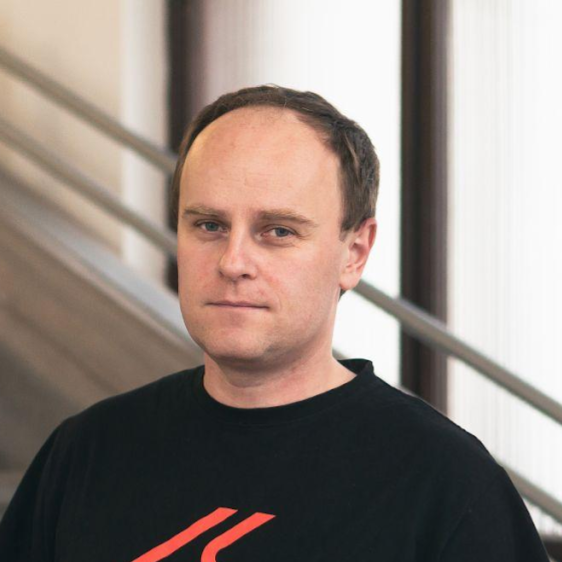
I obtained my PhD in 2015 in Prague, Czechia based on my collaboration with prof. Fulem on benchmarking ab initio sublimation models for molecular crystals. Then I moved to Clermont-Ferrand, France to work with prof. Pádua and prof. Costa Gomes on pioneering molecular simulations of porous ionic liquids based on metal-organic frameworks dispersed in aprotic ionic liquids. In 2016, I went to Riverside, California to work with prof. Beran to develop ab initio methods for polymorph ranking of molecular crystals. Finally, I have been working at UCT Prague since 2017, now as a leader of the Computational Thermodynamics group. My research achievements since that time include development of first-principles predictions of the pressure coordinate of the triple point for ionic liquids, or computational interpretations of extraordinarily high performance of super-capacitors containing surfactant ionic liquids as electrolytes. I have been pursuing also the story of porous liquids, focusing on implementing polarizable simulation models to investigate local dynamics, enthalpic and entropic effects at their solid-liquid interfaces. My current research interests include crystal structure prediction for ionic liquids and in silico screenings of their potential to form plastic high-entropy crystals.
- Ab initio modeling
- Molecular crystals
- Ionic liquids
- Polymorph ranking
- Vapor pressures
-
Gabriel Zarca
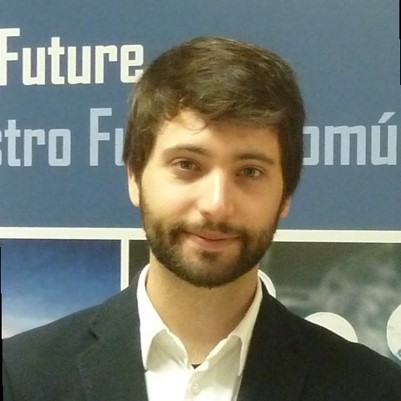
I began working on ionic liquids during my PhD thesis, seeking a stable medium to selectively separate carbon monoxide, via chemical complexation, from other gases with similar physical solubility in conventional solvents. This initial work sparked my interest in understanding the absorption mechanisms of fluorinated hydrocarbons in ionic liquids and identifying the most suitable ionic liquids for separating azeotropic or close-boiling mixtures of hydrofluorocarbons and hydrofluoroolefins, which are commonly used as working fluids in refrigeration and air conditioning applications. In this field, we have optimized an extractive distillation process to recycle these valuable compounds at the end of the equipment’s life cycle. Additionally, driven by the unique separation properties of ionic liquids, I tackled the challenge of incorporating them into mechanically stable thin-film membranes for gas separation. Our flat-sheet and hollow-fiber ionic liquid-based membranes have been tested in bench-scale prototypes for the separation of fluorinated hydrocarbons.
- Gas separation
- Membranes
- Absorption
- Process modelling
- Simulation and optimization
-
Josh J Bailey
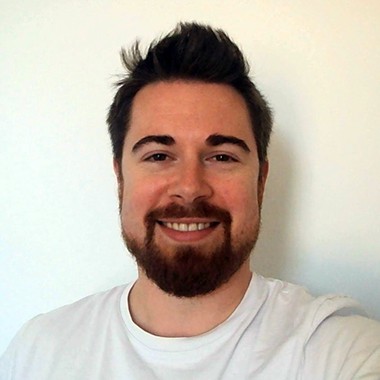
Dr Josh J. Bailey is a Vice-Chancellor’s Illuminate Fellow in the School of Chemistry and Chemical Engineering at Queen’s University Belfast (QUB), founding his research group at the beginning of 2024, with a focus on electrochemical energy storage. He obtained his first degree from the University of Oxford (MChem) in 2014 and completed his PhD in Chemical Engineering in 2019 as part of the Centre for Doctoral Training in Advanced Characterisation of Materials across University College London and Imperial College London. His research focus began in ceramic-based fuel cells, before undertaking post-doctoral work in polymeric membranes and lithium-ion batteries, before moving to QUB in 2020 to work on flow battery materials and cell design. Having joined the Queen’s University Ionic Liquid Laboratories (QUILL), he became interested in the potential functional advantages of implementing ionic liquids in electrochemical devices and now explores the role of protic and poly(ionic liquids) in improving the performance, durability and sustainability of intermediate-temperature polymer electrolyte fuel cells.
- Ionic liquids
- Nanofabrication
- Focused ion beams
- Propulsion
- Surface forces
-
Kateryna Goloviznina
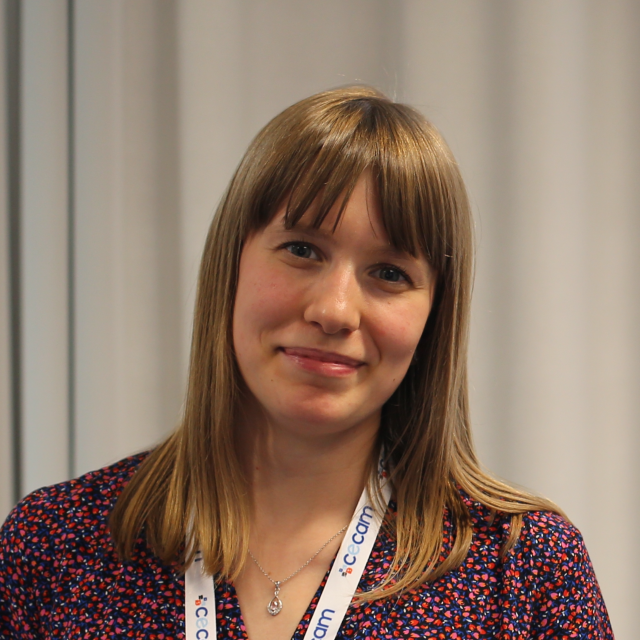
Dr. Kateryna Goloviznina has been a permanent CNRS researcher in Marcoule Institute in Separation Chemistry (France) since 2025. She obtained her Master's degrees from V. N. Karazin Kharkiv National University (Ukraine) and the University of Lille (France) in 2018. During her Master studies, she took her first steps in exploring ionic liquids by classical molecular dynamics simulations. Three years later, in the ENS Lyon (France), she defended her PhD thesis on the development of advanced molecular interaction models with explicit polarisation effects applied to ionic liquids, deep eutectic solvents, and electrolytes. In 2022, she joined the PHENIX laboratory, Sorbonne University (France) as a post-doctoral researcher and studied solvation effects in ionic fluids and worked on the rational design of electrolytes for batteries and supercapacitors. Currently, she focuses on the application of ionic liquid-based materials for metal ion separation in the context of recycling of metals, involved in the nuclear cycle or coming from the urban mines.
- Densely charged fluids
- Solvation
- Solid-liquid interface
- Polarisable molecular dynamics
- Ab initio molecular dynamics
-
Leila Moura
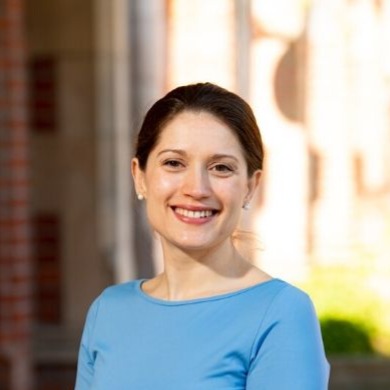
Dr Moura is a Lecturer in physical-chemistry in the School of Chemistry and Chemical Engineering at Queen’s University Belfast. She was a Royal Academy of Engineering Research Fellow between 2019-2024 and founded a research group focused on developing “Liquid Engineering for Gas Separations”. Leila graduated in Chemistry (MSc) at Instituto Superior Técnico, Portugal in 2008. In 2014 she completed a PhD in physical-chemistry at Université Claude Bernard Lyon 1, France studying the potential of ionic liquids for the separation of light hydrocarbons. This work was completed in a partnership between the Santini group in CPE Lyon, the Costa Gomes group in ICCF, Université Blaise Pascale, Clermont-Ferrand and the French Institute of Petroleum (IFP Énergies nouvelles). For this work she was awarded the 2018 European Federation of Chemical Engineering (EFCE) Excellence Award in Fluid Separations. Her interest in developing alternative materials with environmental and energetic impact was further enhanced during the following 4 years of post-doctoral fellowships in the Fourmentin group (ULCO, France), a 2 year Marie Skłodowska-Curie Individual Fellowship in the Holbrey group (Queen’s University Belfast, UK) and an InvestNI PoC project in the Manesiotis group (Queen’s University Belfast, UK).
- Gas separation
- Hydrocarbon separation
- Phase equilibria
- Porous liquids
- Water desalination
-
Nicolas Schaeffer
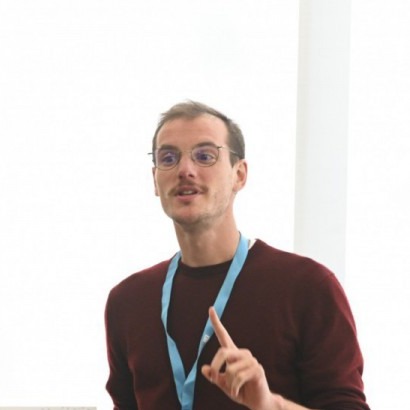
I am an auxiliary investigator at the Department of Chemistry of the University of Aveiro and a researcher at CICECO – Aveiro Institute of Materials. My journey with ionic liquids started as a curiosity during my PhD (Imperial College, UK) and growing into a serious interest during my post-doctoral stay at the University of Aveiro, focusing on ionic liquid-based systems for metal separation. My research centers on the development of sustainable separation processes using ionic liquids and deep eutectic solvents. A particular research interest is on the understanding of IL structure-performance relationship for metal extraction separation, aiming to develop more flexible and tunable systems as demonstrated for acidic aqueous biphasic systems. I am currently leading the DESignSX research project, which focuses on metal separation and circularity using new classes of solvent.
- Hydrometallurgy
- Solvent extraction
- Circular economy
- Critical metals
-
Shurui Miao
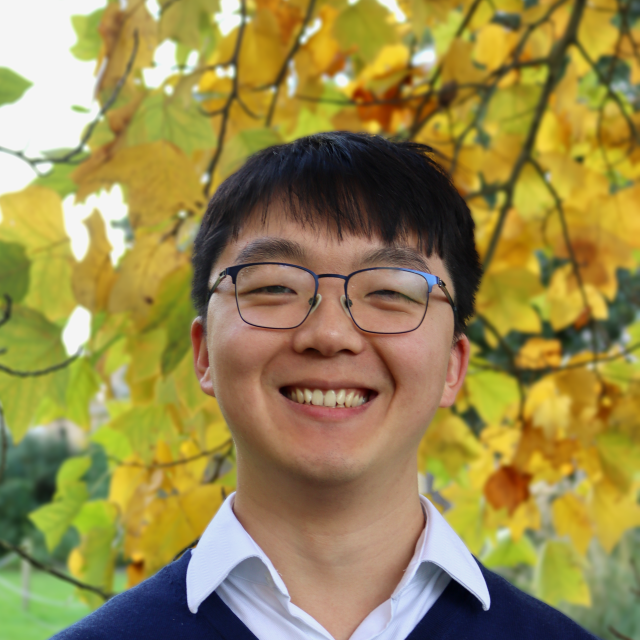
Shurui is currently a Career Development Research Fellow in Chemistry at St John’s College, University of Oxford. He completed his PhD at the University of Sydney where he worked with Prof. Gregory Warr on understanding the design principles of green amino acid based ionic liquids for biomass processing. He is an expert on using x-ray and neutron scattering techniques combined with computational modelling to study structures in complex fluids and self-assembly in liquids. After his PhD, Shurui joined the Group of Prof. Susan Perkin at Oxford as a postdoc before being awarded his Fellowship in 2024. His current research includes the study of sub-diffusive dynamics of ions and their role in governing bulk viscoelastic properties in concentrated electrolytes, as well as the role of charge correlation in the bulk and at interfaces for scalable carbon sequestration. His work has been recognised through awards including the ISIS Neutron and Muon Source Springboard Award and he was named as a finalist for the Emerging Investigator Award at the triennial meeting of International Association of Colloid and Interface Scientists.
- Bulk and Interfacial Structure
- Ion Dynamics
- Self-assembly
- Green Chemistry
- Liquid under confinement
-
Tom Frömbgen

I received my Bachelor’s and Master’s degrees in Chemistry from the University of Bonn, Germany, in 2020 and 2022, respectively. Toward the end of my undergraduate studies, I found my “scientific home” in the research group of Prof. Barbara Kirchner, who warmly welcomed me and introduced me to the fascinating world of ionic liquids (ILs) and molecular dynamics (MD). Since October 2022, I have been pursuing my PhD in her group. Over the years, I’ve had the pleasure of working with brilliant colleagues both within and beyond the Kirchner group. My research focuses on the structure and dynamics of ILs, explored through various MD simulation techniques and related software development. A central interest of mine is computational vibrational spectroscopy (particularly IR and VCD) which I’ve used to study chiral induction in ILs and other liquid systems. More recently, my work has extended to IL/graphite interfaces and the development of force fields tailored to these systems.
- Molecular Dynamics
- Vibrational Spectroscopy
- Interfaces
- Chirality
- Transport
